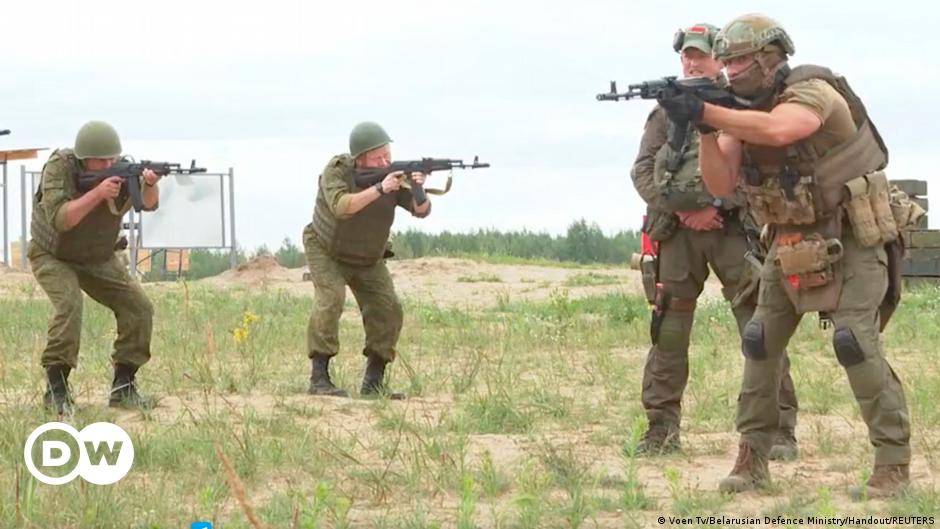- cross-posted to:
- [email protected]
- cross-posted to:
- [email protected]
After Poland reacted to the arrival of Wagner mercenary troops to Belarus by moving some of its troops to its eastern border, Russia’s Vladimir Putin accused Warsaw of trying to seize more land in eastern Europe.
Putin claimed there were press reports about forming a Polish-Lithuanian unit that would operate in western Ukraine. He also warned that any attack on Belarus, Moscow’s sole ally in Europe, would be treated as an attack on Russia.
“It is well known that they also dream of the Belarusian lands,” Putin said.
Speaking ahead of a meeting of Russia’s Security Council, Putin said that Russia would respond "with all means at our disposal.
Here are more major developments in Russia’s war in Ukraine from Thursday, July 21:
Russian President Vladimir Putin claimed the West is running out of “cannon fodder” in Ukraine and said Polish leaders were seeking to intervene under the umbrella of NATO.
“The perspective is obvious,” Putin said. “If Polish troops enter, for example, Lviv or other Ukrainian territories, they will stay there. And they will stay there forever.”
The Russian president also spoke at length about Poland’s alleged history of claiming territories of other countries. According to Putin, this history culminated in 1939 with Poland being cast away by its Western allies to be “eaten” by Nazi Germany. In reality, Berlin and Moscow agreed to divide Polish territory in 1939 after Germany and the Soviet Union formed a non-aggression pact.
He did not make any comparison to Moscow’s illegal annexation of the Crimean peninsula in 2014 or its claims that regions of eastern Ukraine occupied by Russian forces are part of Russia.
Putin claimed the Soviet Union restored Polish independence after WWII and allowed it to expand into German territories.
“Have our friends in Warsaw forgotten about this? We will remind them,” Putin said, instructing its foreign intelligence chief to closely monitor Warsaw’s actions.



What’s the point of applying the actions of a country nearly 100 years ago when talking about current issues? We’re not even going to address whether statements are true are not. Knowing history and how it applies to the modern world is one thing, but using said actions as a justification for the modern application is reductive but that message is for people who don’t think critically I guess.